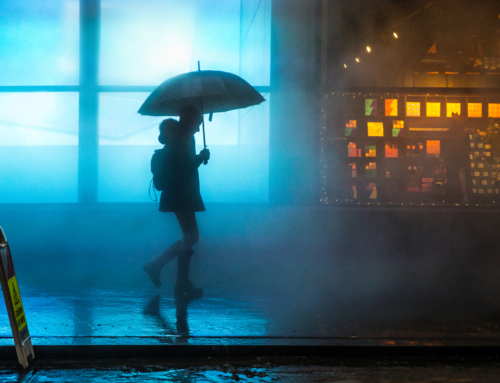My husband Ralph and I are parents to four beautiful girls: Emily, Sophia, Rachel and Janneke. Though we celebrate the gifts and abilities of all our daughters, we are often consumed with the needs of Rachel and Janneke. Both Rachel and Janneke were born with an undiagnosed syndrome, special needs that affect every aspect of being; they have stretched and tested our strength, humour, parenting, and faith. Rachel and Janneke are g-tube fed continuously, and both girls are unable to walk independently or talk. Given their many limitations, Rachel and Janneke bring joy with their smiles and teach us grace with their dependency on others. Writing is one of the ways I have worked through my doubts and emotions. The following was first printed in Christian Courier, April 2016.
In 1987, Martin Pistorius was a healthy twelve-year-old boy living in South Africa. Without warning, he contracted an unusual virus that progressively changed him from a typical young man to someone in what could be described as a “vegetative state.”
The Pistorius family faced uncertainty surrounding their son’s health and wellbeing; they were told to wait for him to die. Miraculously, Martin became aware of his surroundings approximately two years after falling ill, yet he was the only one cognizant of being held captive in his own body. Though he could hear and think, he could not communicate with his caregivers and family. Only after obtaining a communicative device was he able to slowly recover his life. His full story is captured in his memoir, Ghost Boy.
Forever guessing
I learned the story of Martin in January 2015, and the idea of being a prisoner within one’s own skin hit close to home. Martin spent over a decade being cared for as an incapacitated young man. When I read Martin’s frustration and anger from having to watch Barney (purple dinosaur of a children’s television series) reruns at a special care centre, my stomach turned.
Caring for and raising children who are nonverbal comes with a set of unique challenges. You are forever guessing what captures their attention and what causes them pain. As Rachel and Janneke age, we can only guess what they know and comprehend. We have no clear understanding about their understanding.
Because Rachel and Janneke can’t interact with regular play activities, they often observe others play. They watch TV programs that show kids playing and singing, and they also enjoy listening to songs and stories read aloud. When the story of Martin Pistorius was sent to me, the girls were watching a Barney rerun.
View from their shoes
I shared parts of Martin’s story with Emily and Sophia, and we talked about the idea of Rachel and Janneke “trapped” inside their bodies. Now that Emily and Sophia are in their early teens, they are able to engage in some introspection; they are slowly able to shift perspective from their own shoes to their sisters’. Together, we wondered if Rachel and Janneke really want to watch Barney?
As a result, we began to consider age-appropriate content of the girls’ TV and audio programs. Emily and Sophia recalled shows and stories they preferred at the ages of their sisters. I took time to ask Rachel’s peers what sorts of things interested them, and we spent more time assessing Rachel and Janneke’s body language as they watched and listened to programs.
Living to understand
We are thankful to parent two typically developing girls alongside two severely disabled girls. Emily and Sophia have often spoken for their sisters, telling us what Rachel or Janneke “thinks” about something. Albeit, in the earlier years, some of the “thoughts” were patterned after their big sisters’ interests, but more recently, we have appreciated the special insight siblings have with each other.
As parents, we know we ought to create healthy and respectful expectations for all our girls. We want to live as if Rachel and Janneke can hear and understand what we say and do. We talk to them, and we allow time for them to respond. However they show interaction-eye gaze, a slight grin, or the extension of their hands, we try to appreciate and acknowledge as such.
Intercessory grace
In Martin’s story, his mother struggled to care for and love her son with severe disabilities. He recalled one moment when he heard his mother wish aloud that he would die. Before we judge her dreadful words, we must understand this mother was desperately grieving the loss of her son-who was still alive.
I may not know her words, but I know her grief. I also know there is grace that allows me to mourn and still live with joy that someday, we will all be made new. I believe that my kids are understood by their Creator, one who intercedes for all of us when words fail or aren’t possible. I believe that as complicated as they may seem, both Rachel and Janneke have purpose, a purpose that may simply be to motivate the rest of us to care and be more caring.




